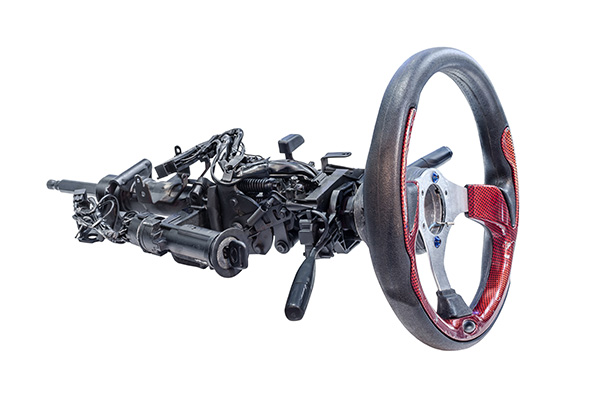
A shaking steering wheel can be a stressful experience, especially when you’re cruising down the highway. When your car’s steering wheel starts to tremble or vibrate, it's often a sign that something isn't quite right under the hood or with your vehicle’s wheels. Steering wheel shakes can stem from several factors, ranging from tire issues to more serious mechanical problems. Ignoring the problem may not only make your driving experience uncomfortable but could also put your safety at risk. So, what's causing that annoying shake in your steering wheel? Let’s explore the common culprits.
Tire Issues
If you feel the steering wheel shake, especially at higher speeds, you should first check your tires. Unbalanced tires are one of the most common causes of steering wheel vibrations. When tires are not balanced, the uneven weight distribution causes them to wobble, translating into a noticeable shake in the steering wheel.
It’s not just unbalanced tires that could be the problem—worn or damaged tires can cause issues, too. If the tread on your tires is worn unevenly, or if you have a tire that’s damaged or underinflated, it can lead to vibrations while driving. Regularly inspecting your tires and ensuring they are inflated to the proper pressure can help prevent this issue.
Brake Problems
Do you notice that your steering wheel shakes more when you hit the brakes? This can often indicate a problem with your braking system. One common cause is warped brake rotors. Rotors can become warped over time due to excessive heat from braking, especially during hard or frequent braking. When the rotor isn’t perfectly flat, the brake pads can’t make proper contact with it, leading to vibrations that travel up to your steering wheel.
Another possibility is that your brake caliper is sticking. When a caliper sticks, it can cause uneven braking pressure, which results in the steering wheel vibrating. If your steering wheel shakes every time you brake, it's essential to have your brakes inspected sooner rather than later, as this could be a safety concern.
Wheel Alignment
If your car's wheels are not aligned properly, you’ll likely feel the effects in your steering. Misaligned wheels mean that your tires aren’t pointing in the same direction, which can lead to uneven tire wear and, you guessed it, a shaking steering wheel. You may also notice your car pulling to one side or the other as you drive.
Hitting a pothole or curb can throw your wheel alignment out of balance, so if you’ve recently had a rough encounter with the road, this could be the reason your steering wheel is shaking. A quick alignment adjustment can often resolve this issue and keep your car riding smoothly.
Suspension Issues
Your vehicle’s suspension is responsible for maintaining stability while you drive. If there's a problem with your suspension, it can lead to steering wheel vibrations. For instance, worn suspension components such as ball joints, control arms, or bushings can cause your car to shake, especially when driving over rough roads or uneven terrain.
A telltale sign of suspension trouble is if the steering wheel shakes only when driving over bumps. If this sounds familiar, it’s important to get your suspension checked and repaired to avoid further damage to your car and improve handling.
Worn Out Wheel Bearings
Wheel bearings are an essential part of your vehicle's wheel assembly, allowing your tires to spin freely with minimal friction. Over time, these bearings can wear out, and when they do, they can cause a steering wheel to shake. A bad wheel bearing can also make a grinding noise, particularly when turning.
While worn wheel bearings are less common than tire or brake issues, they are still a possible culprit when diagnosing steering wheel vibrations. If you notice increased shaking and strange noises coming from your wheels, a professional should check your bearings.
Steering Components
Lastly, steering wheel vibrations can also be caused by problems within the steering system itself. Components such as the tie rods, steering rack, and bushings are responsible for maintaining the connection between your steering wheel and the wheels of your car. If any of these parts are damaged or worn out, it can result in a shaky or unresponsive steering wheel.
The steering system may be to blame if your steering wheel shake is accompanied by a loose or "wobbly" feeling while driving. A professional inspection is necessary to identify and fix these issues.
Is your car's steering wheel acting up? At Quality Tune-Up Auto Care, our expert technicians can get to the root of the problem and have your car handling like new. Visit us for a quick and reliable inspection!